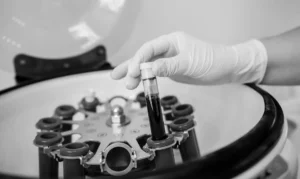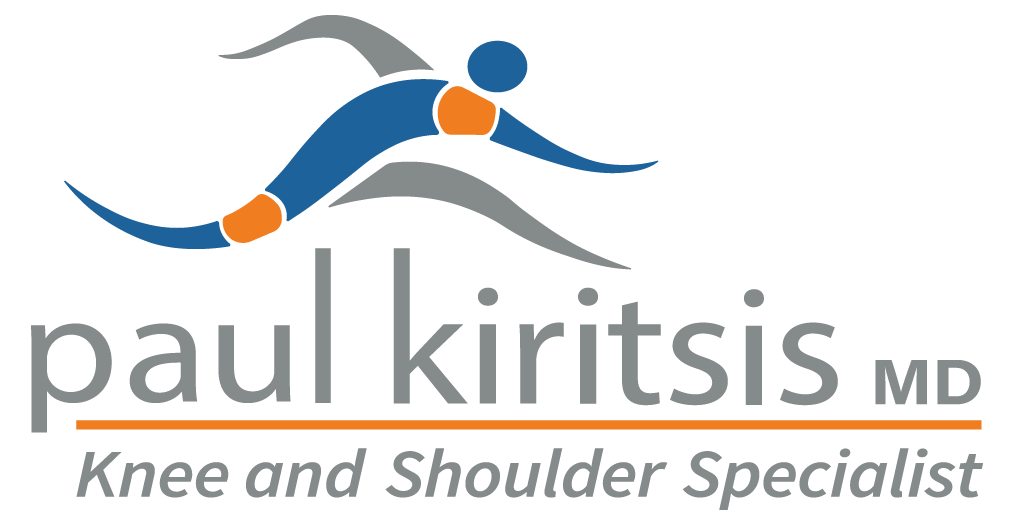Custom shoulder implants are tailored to match each patient’s unique anatomy, offering solutions where traditional implants fail. This article explores their benefits, when they’re necessary, and how they’re created.
Key Takeaways
- Custom shoulder implants provide personalized solutions for patients with complex anatomical challenges, improving fit and functionality compared to traditional implants.
- The creation of custom shoulder implants involves advanced imaging, precision design, and meticulous surgical planning, utilizing technologies like 3D printing to enhance outcomes.
- While offering significant benefits, custom shoulder implants may come with higher costs and require specialized surgical expertise, influencing their accessibility and effectiveness.
Understanding Custom Shoulder Implants
Custom shoulder implants are personalized prostheses meticulously designed to fit an individual’s unique anatomy, addressing issues that standard implants cannot. These custom implants are crucial for patients with complex anatomical challenges, such as severe glenoid wear or deformities, offering a tailored solution that improves joint functionality and comfort. Custom shoulder implants aim to restore motion and stability to the shoulder joint, enhancing patients’ quality of life.
The advantages of custom shoulder implants for patients who require them are clear: improved fit, enhanced functionality, and potentially better overall patient outcomes. Unlike traditional implants, custom shoulder implants are designed to conform perfectly to the patient’s bone structure, providing a more natural and effective solution.
Future developments in this field are expected to include even more personalized designs, further advancing the capabilities of these innovative prostheses.
When Are Custom Shoulder Implants Necessary?
Custom shoulder implants become necessary when traditional prosthetics fail to address severe glenoid bone loss or complex glenoid deformity. Such conditions make it impossible to use off-the-shelf implants effectively. For instance, patients with severe glenohumeral arthritis or those requiring revision shoulder arthroplasty often benefit from custom glenoid implants tailored to their specific anatomical needs. These custom solutions, including augmented glenoid components, are designed to provide a better fit and improved functionality, addressing the unique challenges posed by massive glenoid defects or deformities.
Factors like functional demand and remaining bone stock influence the decision to use custom implants. Patients with high functional demands or significant bone deficiencies are ideal candidates for custom shoulder implants, as these prostheses can offer superior stability and performance compared to traditional implants.
Custom shoulder implants are often the last resort for extreme cases of glenoid wear. In these situations, customized implants provide a viable solution where traditional approaches fail, offering hope to patients who previously had limited options. Custom shoulder implants address severe bone loss and complex deformities, enhancing total shoulder replacement outcomes.
The Process of Creating Custom Shoulder Implants
Creating custom shoulder implants is a meticulous process that involves several critical steps, starting with a thorough preoperative assessment and imaging, followed by the design and manufacturing of the implant, and culminating in precise surgical planning and execution. This comprehensive approach ensures that the custom implant perfectly matches the patient’s unique anatomy, providing the best possible fit and functionality.
The use of advanced technologies, such as 3D printing and computer-assisted surgical planning, plays a pivotal role in this process, enabling the creation of highly personalized and effective shoulder implants.
Preoperative Assessment and Imaging
The journey to a custom shoulder implant begins with a detailed preoperative assessment, which involves advanced imaging techniques like CT scans and 3D imaging. These imaging modalities are essential for creating precise models of the patient’s anatomy, allowing for the development of tailored implants that fit the specific bone geometries. Through comprehensive imaging, surgeons can assess bone density and quality, which are critical factors for effective custom implant placement.
Preoperative studies provide insights into each patient’s unique challenges, beyond just capturing images. Detailed imaging allows surgeons to pinpoint areas of bone loss, deformities, or other issues for targeted interventions. This detailed preoperative plan ensures that the custom implant will provide the best possible outcome, tailored to the patient’s anatomical needs.
Design and Manufacturing
The design and manufacturing of custom shoulder implants are driven by advanced technologies and precision engineering. Using sophisticated software, implant manufacturers create detailed designs that match the patient’s unique bone structure. One of the most revolutionary techniques in this process is 3D printing, which allows for the creation of custom-shaped implants that provide perfect fits and enhanced fixation. This precision manufacturing process ensures that the implants conform to the patient’s anatomy, leading to better outcomes.
3D printing is not just a manufacturing technique; it represents a paradigm shift in medical technology. By enabling the production of highly customized implants, 3D printing allows for innovations like bioactive materials that promote healing and integration with bone.
Future advancements may include AI-driven design processes, further personalizing the creation of custom shoulder implants and enhancing their effectiveness.
Surgical Planning and Execution
Surgical planning and execution are critical to the success of custom shoulder implants. With every Precision Shoulder replacement, I utilize imaging and advanced 3D surgical planning software to ensure precise implant sizing and placement. This technology allows for detailed preoperative plans that consider the patient’s unique anatomical features, ensuring that the custom implant will fit perfectly and provide optimal functionality.
In some cases, patient-specific instrumentation further enhances the accuracy of implant placement during surgery, leading to better alignment and stability.
During the surgery, the use of patient-specific instrumentation is crucial for maintaining precision and reducing the risk of complications. Surgeons need to ensure that the design allows for adequate screw fixation to avoid micromotion, which can lead to implant loosening or failure. A meticulously crafted surgical plan enables shoulder surgeons to enhance procedure success and achieve better outcomes.
Advantages of Custom Shoulder Implants
For patients with complex shoulder conditions, custom shoulder implants can offer numerous advantages over traditional implants, making them a preferred choice. The personalized approach to joint replacement facilitates a more natural fit, improved functionality, and potentially better overall patient outcomes.
These benefits are particularly evident in cases where standard implants fail to address the unique anatomical challenges presented by severe bone loss or bone graft deformities.
Improved Fit and Functionality
The precision of custom implants significantly enhances the stability and functionality of the shoulder joint compared to traditional options. For patients with unique anatomical challenges, custom implants provide a tailored solution that standard implants cannot accommodate. This improved fit leads to better joint stability and overall function, particularly in revision shoulder surgeries where anatomical changes may have occurred.
Advancements in shoulder implant technology have focused on enhancing patient-specific designs and functionality. These advancements not only improve the fit and functionality of the implants but also contribute to better long-term outcomes for patients.
Reduced Risk of Complications
One of the significant advantages of custom shoulder implants is the potential reduced risk of complications compared to conventional implants for the patients who require them. A precise fit of custom implants can significantly lower the chances of loosening and dislocation. The individualized nature of these implants may allow for better alignment, which minimizes the risk of complications such as implant loosening and dislocation.
The precise fit of custom implants can also lead to less bone and soft tissue disruption during surgery, further minimizing post-operative complications. This careful alignment and placement of the implant may reduce the likelihood of issues like scapular impingement, leading to improved surgical outcomes and patient satisfaction.
Opportunity for Enhanced Patient Outcomes
Custom shoulder implants have shown promising results in improving clinical outcomes for patients with significant glenoid bone deficiencies. Clinical outcome measures, such as the Constant score and the ASES score, indicate that patients experience significantly reduced pain and better overall function with custom implants. These positive outcomes are a testament to the effectiveness of personalized implants in addressing severe shoulder conditions.
Patients with custom shoulder implants may even experience quicker recovery times, which positively impacts their overall rehabilitation. The combination of reduced pain, improved functionality, and faster recovery leads to higher satisfaction rates among patients. Enhanced recovery with custom shoulder implants leads to better long-term outcomes and improved quality of life.
Revision Shoulder Arthroplasty
Revision shoulder arthroplasty is a surgical procedure aimed at addressing complications or failures from previous shoulder replacements. When a patient experiences issues such as implant loosening or severe glenoid bone loss after an initial shoulder replacement, custom implants may be able to provide a tailored solution that better fits the patient’s current anatomy. These custom-designed implants may offer improved stability and function, addressing the specific challenges posed by the patient’s anatomical changes and bone loss, including the need for reverse shoulder arthroplasty.
Advanced design and manufacturing processes tailor custom implants to fit the patient’s unique bone structure, offering a more stable and effective solution. This personalized approach leads to better outcomes and improved patient satisfaction, making custom implants a valuable option in revision surgeries.
Surgical Expertise Required
The successful placement of custom shoulder implants requires a high level of surgical expertise in shoulder replacement. Surgeons should have specialized training to accurately place these complex implants, which often involve advanced techniques and precision movements. Research shows that higher case volumes correlate with lower complication rates and improved patient outcomes, emphasizing the importance of experience and expertise of a shoulder surgeon in these procedures.
Experienced shoulder surgeons are better equipped to handle the intricacies of custom implant placement, often leading to better alignment and stability of the implant. This expertise is crucial for ensuring the long-term success of the surgery and minimizing the risk of complications.
Long-Term Outcomes
Rehabilitation is a critical component of achieving successful long-term outcomes after shoulder replacement surgery. Physical or occupational therapy plays a key role in the rehabilitation process, helping patients gradually improve shoulder movement and regain strength. The goal of rehabilitation is to support recovery and enhance the functionality of the custom implant, ensuring that patients can return to their daily activities with minimal discomfort.
The importance of rehabilitation cannot be overstated, as it directly impacts the long-term success of the surgery. By following a structured rehabilitation program, patients can achieve better outcomes and enjoy a higher quality of life post-surgery.
Precision Shoulder Replacement with Custom Implants
The Precision Shoulder Replacement procedure is revolutionizing total shoulder replacement surgery, offering significant advancements in both recovery and long-term outcomes. Utilizing advanced 3D surgical planning software can ensure precise implant sizing and placement, optimizing patient recovery and function. This meticulous planning can be extremely beneficial for achieving the best possible results, particularly when using custom glenoid implants designed to match the patient’s unique anatomy, including techniques such as eccentric glenoid reaming.
Precision shoulder replacement with custom implants combines innovative techniques, advanced planning, and surgical expertise, providing a promising solution for complex shoulder conditions.
Summary
Custom shoulder implants represent a significant advancement in orthopedic surgery, offering personalized solutions for patients with severe shoulder conditions. These implants can provide improved fit, functionality, and reduced risk of complications, leading to enhanced patient outcomes and satisfaction. The process of creating custom implants, from preoperative assessment and imaging to design, manufacturing, and surgical planning, ensures that each implant is tailored to the patient’s unique anatomy.
Despite the challenges and considerations, such as the need for specialized surgical expertise and the higher cost of custom implants, the benefits far outweigh the drawbacks for the right patients.
Frequently Asked Questions
What conditions necessitate the use of custom shoulder implants?
Custom shoulder implants are warranted in cases of severe glenoid bone loss, complex deformities, or unique bone structures that arise from previous injuries or surgeries. These implants are crucial when standard options are inadequate.
How are custom shoulder implants created?
Custom shoulder implants are created through a combination of detailed preoperative assessments, advanced imaging techniques, and 3D printing. This process ensures that the implants are precisely designed to meet the individual anatomical needs of the patient.
What are the advantages of custom shoulder implants compared to traditional implants?
Custom shoulder implants provide a superior fit that enhances functionality and minimizes risks of complications like loosening and dislocation, leading to improved recovery outcomes and reduced pain for patients.
What challenges are associated with custom shoulder implants?
Custom shoulder implants present challenges such as limited availability, elevated costs, and a reliance on specialized surgical expertise. These factors can hinder accessibility and increase the complexity of the surgical procedure.
How does rehabilitation impact the success of custom shoulder implants?
Rehabilitation significantly enhances the success of custom shoulder implants by improving mobility and strength. A structured program, incorporating physical or occupational therapy, is vital for optimal recovery and long-term outcomes.





